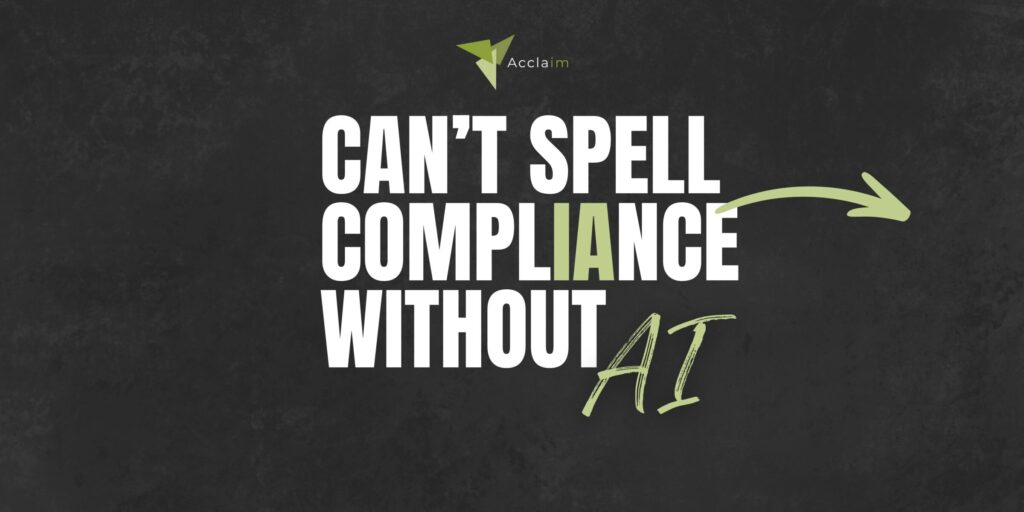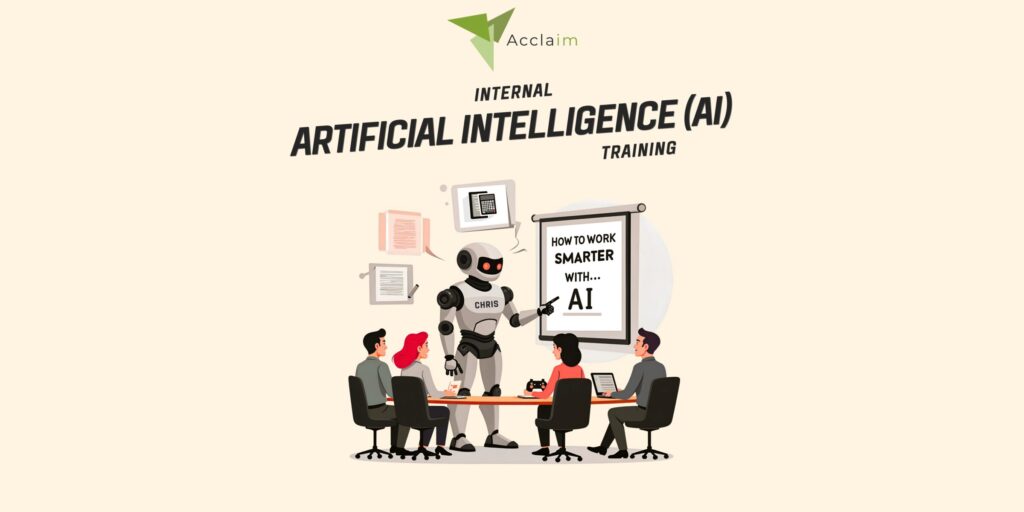
Company News
Can’t Spell ComplIAnce Without AI
Trust Is the Key
AI is charging through the financial world, reshaping how we work, think, and operate. As it accelerates, the role of compliance teams becomes even more vital.
No longer just the “department of NO,” compliance now plays a strategic role—helping businesses manage risk and build trust.
The Regulatory Landscape: A Global Snapshot
United States
The U.S. still lacks a federal AI law. As a result, state attorneys general are stepping in. States like California, Massachusetts, and Texas are using consumer protection and anti-discrimination laws to regulate AI—especially around data misuse and algorithm bias.
European Union
Meanwhile, the EU is moving fast. The upcoming AI Act will classify systems by risk level and impose strict rules on high-risk applications. Financial institutions will need to ensure transparency, accountability, and human oversight.
Asia
Across Asia, regulators are proactive too. For example, Singapore’s Monetary Authority has issued AI guidelines focusing on governance and risk management in finance.
AI Is a Compliance Advantage
AI doesn’t just need to be regulated—it’s becoming an essential tool for compliance itself.
For instance, AI can monitor financial transactions in real time and flag suspicious activity. That means better detection of money laundering, fraud, and terrorist financing.
Moreover, Natural Language Processing tools help compliance teams scan massive volumes of regulatory updates. This lets businesses stay ahead without drowning in documents.
Collaboration Is the Only Way Forward
The integration of AI into compliance isn’t a one-time event. Instead, it demands ongoing collaboration between compliance officers, tech teams, and regulators.
By sharing insights, these groups can ensure that AI is deployed in ways that are ethical, transparent, and legally sound. And as AI evolves, so must internal and external governance frameworks.
Clearly, compliance professionals are key to shaping these frameworks—balancing innovation with accountability.
Speed vs. Control: Why Oversight Still Matters
Yes, AI brings speed. But speed alone isn’t enough.
In regulated industries, human empathy and real-world context still count. If left unchecked, AI can amplify risks like bias, regulatory gaps, and data breaches. It can even flood your team with STRs and DPIAs, creating more work than it saves.
Therefore, using AI wisely means applying it as both a tool and a watchpoint—so businesses can scale with confidence, not chaos.
Will AI Replace Compliance Professionals?
In short: No.
While AI will reshape the skill sets required in compliance, it won’t replace human judgment. In fact, we expect to see more diverse teams—with tech fluency, legal insight, and strategic thinking all in play.
And no matter how advanced the system, it can’t replicate a human’s gut instinct.
Yes, the learning curve has steepened—but that’s how real progress starts. Plus, it’ll definitely help tick off those CPD hours.
What’s your take?
Share This Article





